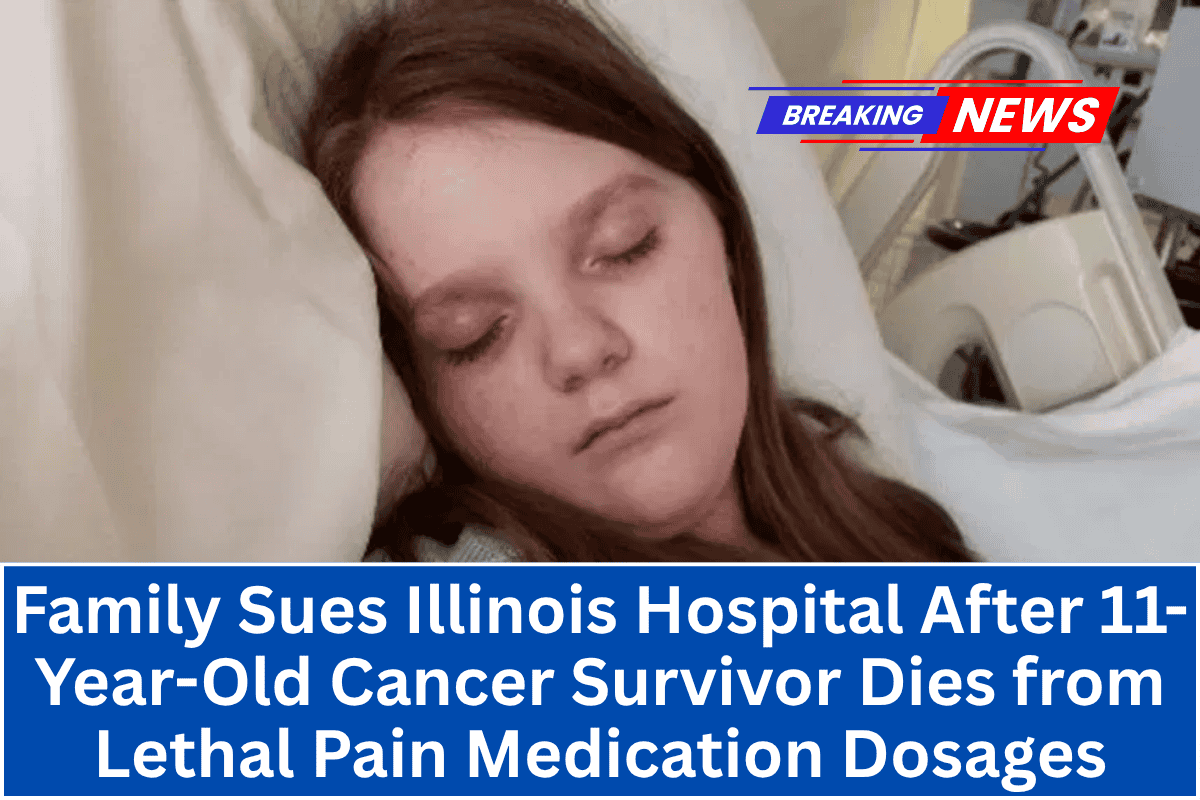The family of an 11-year-old girl from Indiana, who had previously beaten cancer, has filed a lawsuit against Advocate Children’s Hospital in Park Ridge, Illinois, after her death from an overdose of prescription pain medications.
Ava Wilson, who had been in remission from B-lymphoblastic leukemia, died in her sleep on October 31, 2020, after being sent home from a follow-up appointment with an excessive amount of morphine and gabapentin.
A Tragic and Preventable Death
Ava’s family claims that the hospital failed to address her concerning symptoms and instead prescribed an increased dosage of pain medication, which ultimately led to her death.
On October 29, 2020, Ava visited the hospital for a follow-up appointment with a nurse practitioner, where she was reported to be “crying in pain” and struggling to walk.
Lab tests showed troubling signs: low platelet counts, low blood cell counts, high liver enzymes, and low blood pressure.
Despite these alarming signs, the Wilson family’s attorney claims that Ava was not admitted to the hospital for observation but was instead sent home with significantly increased dosages of morphine and gabapentin, two medications commonly used to manage pain.
The prescribed dosages included 100 mg of gabapentin three times a day and 15 mg of morphine every four hours as needed.
On the night of October 31, 2020, Ava tragically passed away in her sleep. Tests revealed that the cause of death was a lethal combination of morphine in her system. The lawsuit claims that the hospital’s decision to send Ava home with these excessive doses contributed to her death.
The Lawsuit and Legal Arguments
The Wilson family’s legal team, led by attorney Matthew L. Williams, argues that instead of sending Ava home, the hospital should have admitted her to ensure her symptoms were properly addressed.
“Ava’s body was yelling out to these clinicians, ‘help me!’ and they just ignored it,” Williams stated in his argument. He emphasized that the doctors’ failure to adequately address Ava’s pain and symptoms ultimately led to her death.
On the other hand, the hospital staff, represented by attorneys at Hall Prangle LLC, argued that Ava’s symptoms were consistent with complications from leukemia. They also stated that the medications prescribed were within the recommended dosages.
However, during the trial, a forensic neuropathologist testified that the cause of Ava’s death was the acute toxicity caused by the combination of morphine, hydroxyzine, and gabapentin.
Jury’s Verdict and Award
On June 10, 2024, after a lengthy trial, a jury sided with the Wilson family, finding in their favor and awarding them $20.5 million for their loss. The verdict acknowledged that Ava’s death was preventable and that she should still be alive today.
“While nothing will ease the depth of Ava’s loved ones’ pain, the family appreciates that the jury recognized that Ava’s death was preventable,” said Aaron D. Boeder, a member of the Wilsons’ legal team.
Hospital’s Response
In response to the verdict, Advocate Health and Hospitals Corporation, which operates the hospital, expressed their condolences to the Wilson family but declined to comment further due to patient privacy laws.
In a statement to McClatchy News, a hospital spokesperson said, “Our hearts go out to this family. We are committed to providing appropriate care to every patient.”
The death of Ava Wilson, a young girl who had fought and survived cancer, is a tragic reminder of the dangers of improper medical care and the importance of vigilant treatment.
Her family’s lawsuit sheds light on the potential risks of overmedication, especially when prescribed without adequate consideration of a patient’s overall condition.
The jury’s decision serves as an acknowledgment that Ava’s death was avoidable, and the $20.5 million award represents a step toward holding the hospital accountable for their actions.






